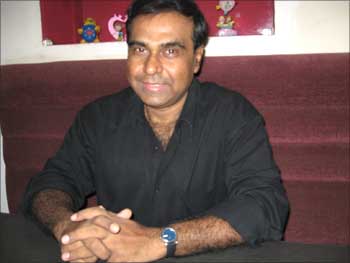
Nothing affects the common people more than price rise of food items and essential commodities. When rediff.com asked some common people prior to the Union Budget tabled on February 26, almost every one urged the government to take measures to counter price rise.
However, while making the Budget announcement, Finance Minister Pranab Mukherjee hiked duty on petroleum leading to a fuel price rise.
The entire Opposition walked out of the Lok Sabha in protest terming the Budget 'inflationary'.
On March 11, hundreds of supporters of Left parties held a demonstration in New Delhi protesting the rising prices of essential commodities.
The protesters demanded immediate steps to bring down the prices of essential commodities and roll back of hike in petroleum prices.
In an informal chat with rediff.com late on Thursday evening, Kolkata-based economist Abhirup Sarkar discussed this burning issue.
. . .
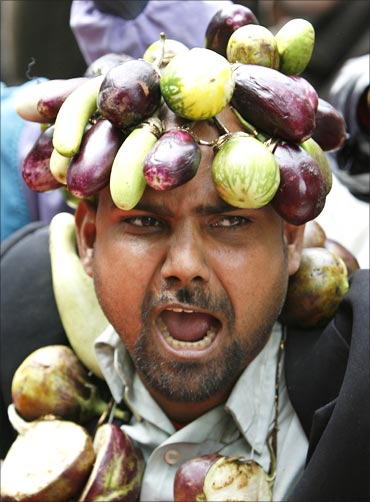
Low agricultural output a cause of concern
"If we look at the recent statistics, the population of India has grown at the rate of 1.9 per cent, whereas agricultural production has grown only at the rate of 1.2 per cent.
"Obviously, therefore, there has been a wide gap between demand and supply. Sadly, neither the previous National Democratic Alliance government nor the present United Progressive Alliance-2 government did or is doing anything to bridge the gap.
"Leaders never put as much stress as they should have on agriculture. This led to a gradual rise in food prices and at the moment, it has reached almost unamanageable level. The onus now rests on the central government to take some drastic yet well thought out steps to counter it."
. . .
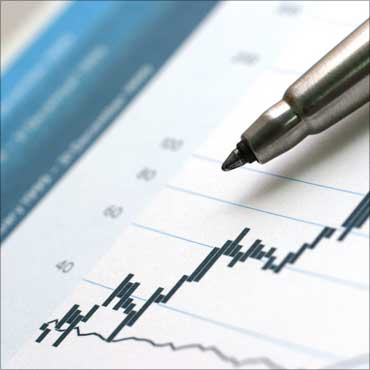
Govt never made any long-term plans
"As an economist, I was shocked to see that the central government, be it the NDA or the UPA, never made any long-term plan to counter inflation. All the measures that they adopted are short-term and poll-centric."
"With such capable people handling the finance department, I fail to understand why the government could not come up with some effective steps to increase agricultural production.
"How can we forget that our honourable Prime Minister Manmohan Singh is one of the greatest economists India has ever produced. Why can't he come up with a solution?"
. . .
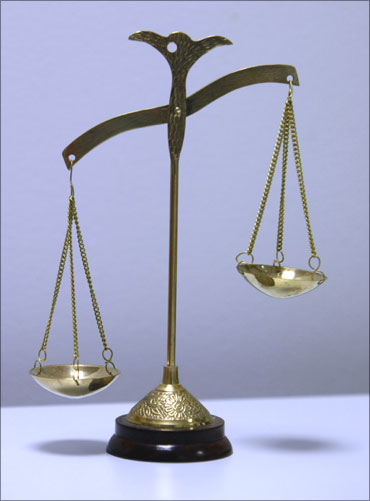
Rs 40,000 crore for NREGS=Further rise in prices?
"As we all know, the National Rural Emplyment Guarantee Scheme received Rs 40,000 crore (Rs 400 billion) from the government. If we filter the corruption issue occuring at the bureucracy level, undoubtedly some part of this money does reach the poor.
"More money for people in urban areas means an increased sales of consumer goods and other related items. But when rural population gets some money, they buy agriultural products and hoard them apprehending a further rise in their prices.
"Hoarding, on the other hand, leads to further rise in food prices."
. . .
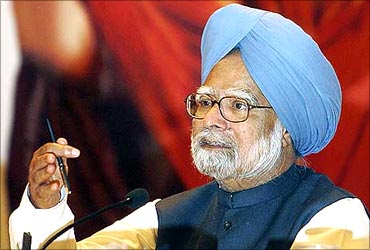
This Budget is inflationary, but. . .
"This year's Budget announced a hike in fuel prices and it is sure to have some inflationary outcome at least for the time being. However, as an economist, I do understand that the finance minister had to hike the fuel price to deal with the fiscal deficit.
"Having said that, I must also point out that along with waiving the farmer's loans in its bid to woo the voters, the government should have provided more money for irrigation.
"We are well aware of the fact that agricultural production was severely hit because of low and late monsoon last year and if we had better irrigational facilities, we could have dealt with the crisis better."
. . .
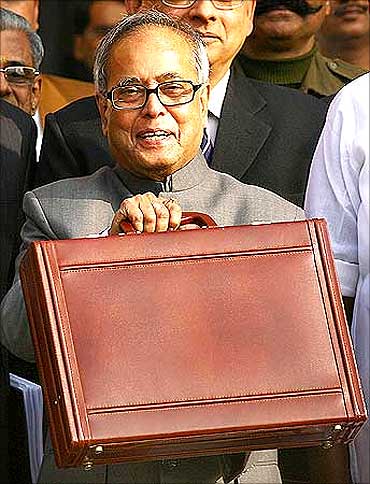
What needs to be done? A few suggestions
"First and foremost, the government needs to put more stress on agriculture. Globalisation is indeed welcome but not at the cost of farming.
"The UPA government should not waste any more time in coming up with a long-term investment plan in agriculture. Unless the supply is increased, prices of food materials can never be curbed.
"Of late, we have been hearing that green revolution will take place in the eastern and south-eastern part of the country. But strangely, only Rs 300 crore (Rs 3 billion) has been allocated for it. A green revolution at Rs 300 crore. Sounds ludicrous!
"Similarly, the government has identified 60,000 villages for production of pulses. Another unrealistic sum of Rs 200 crore (Rs 2 billion) has been allocated for the same. Wish the government acted more sensibly in such trying times."
. . .